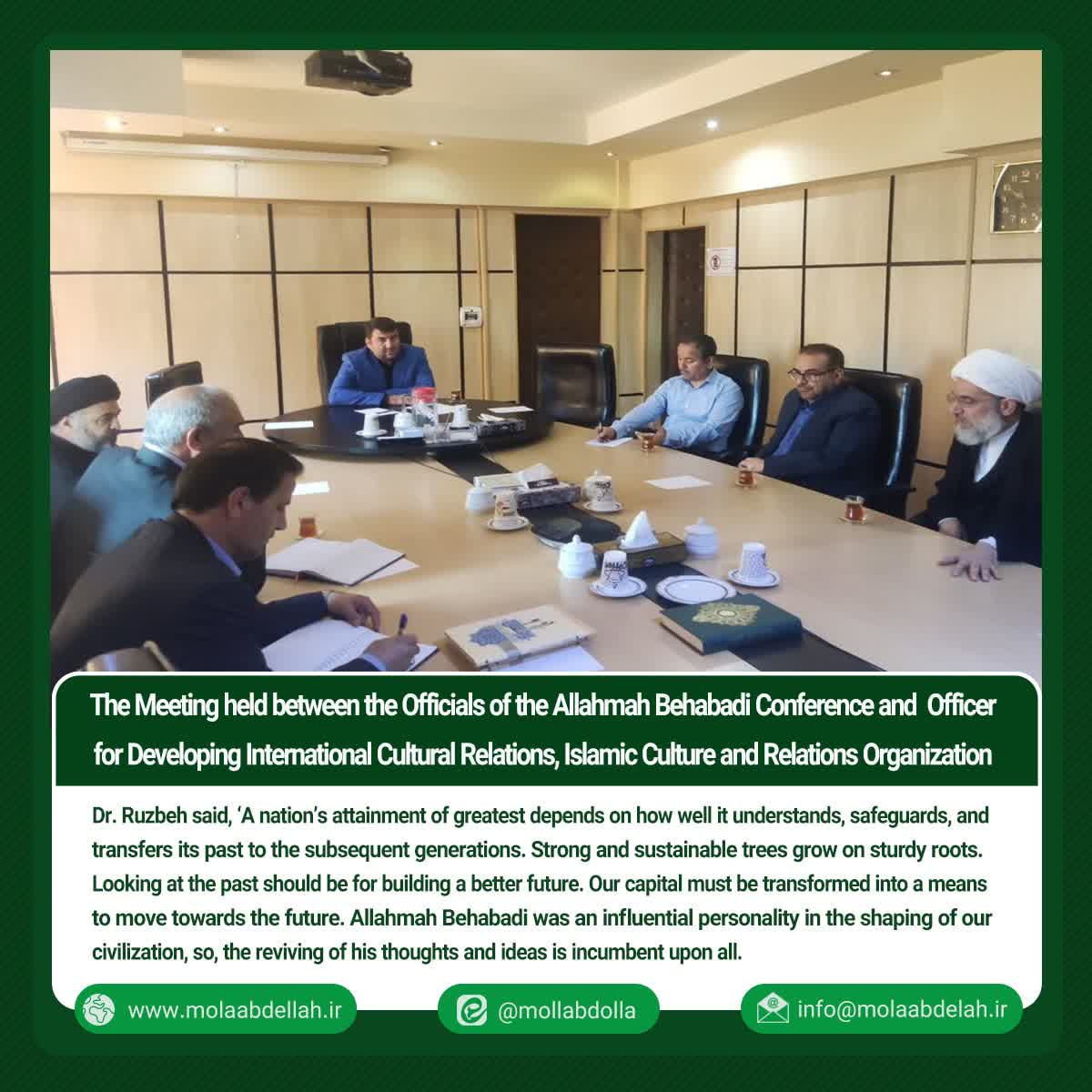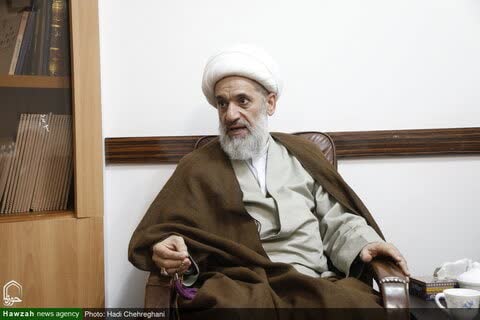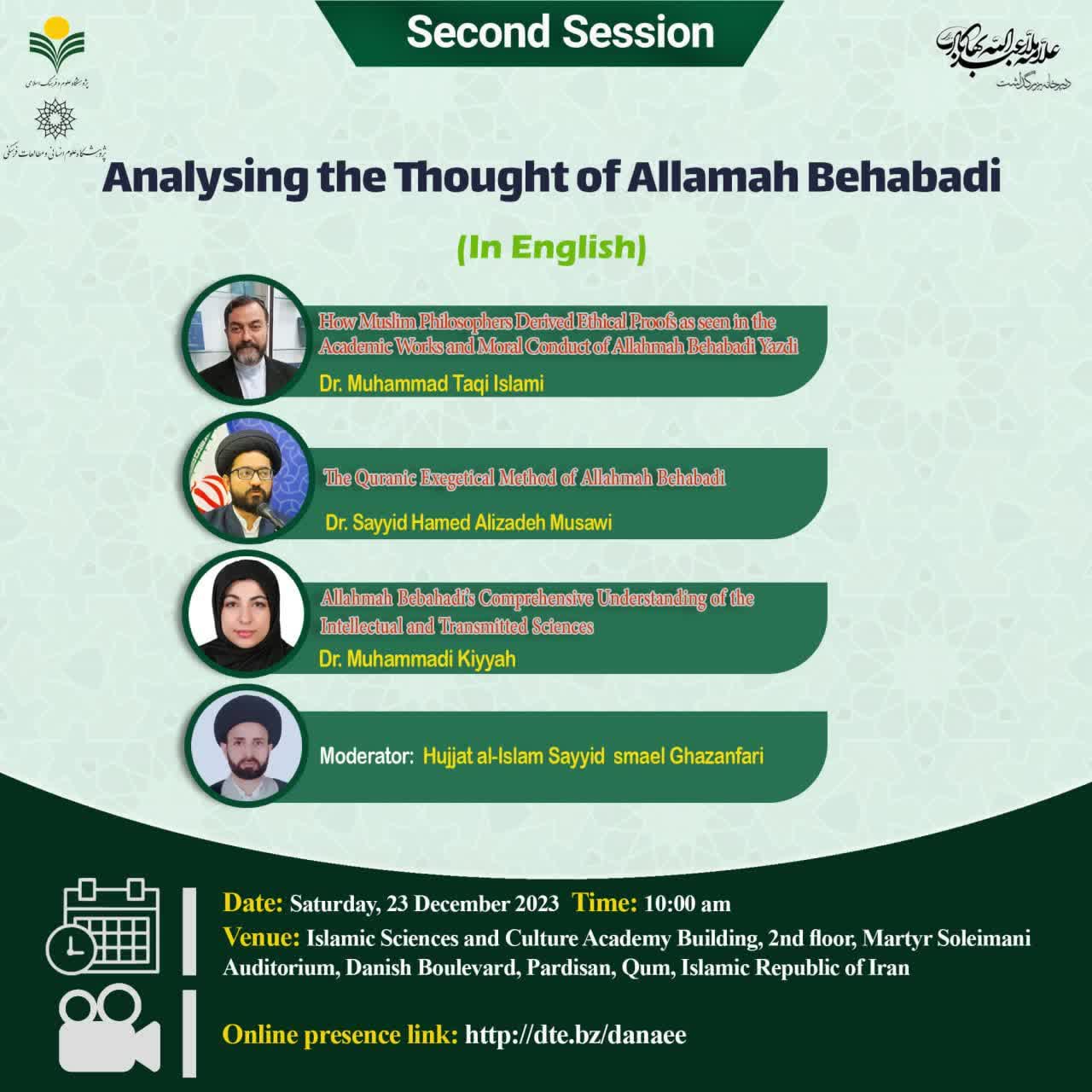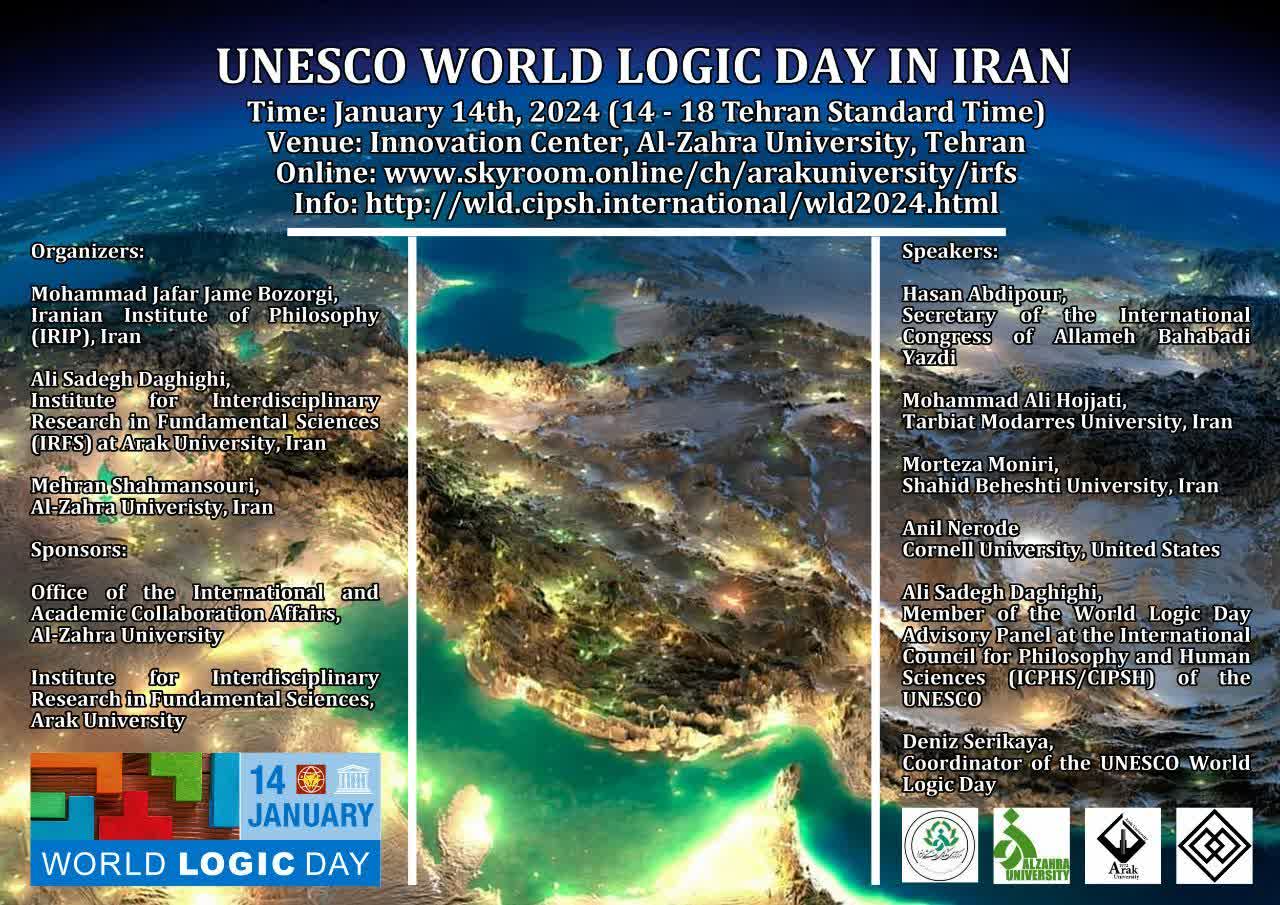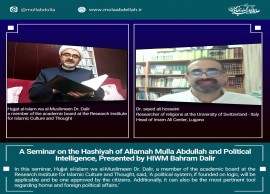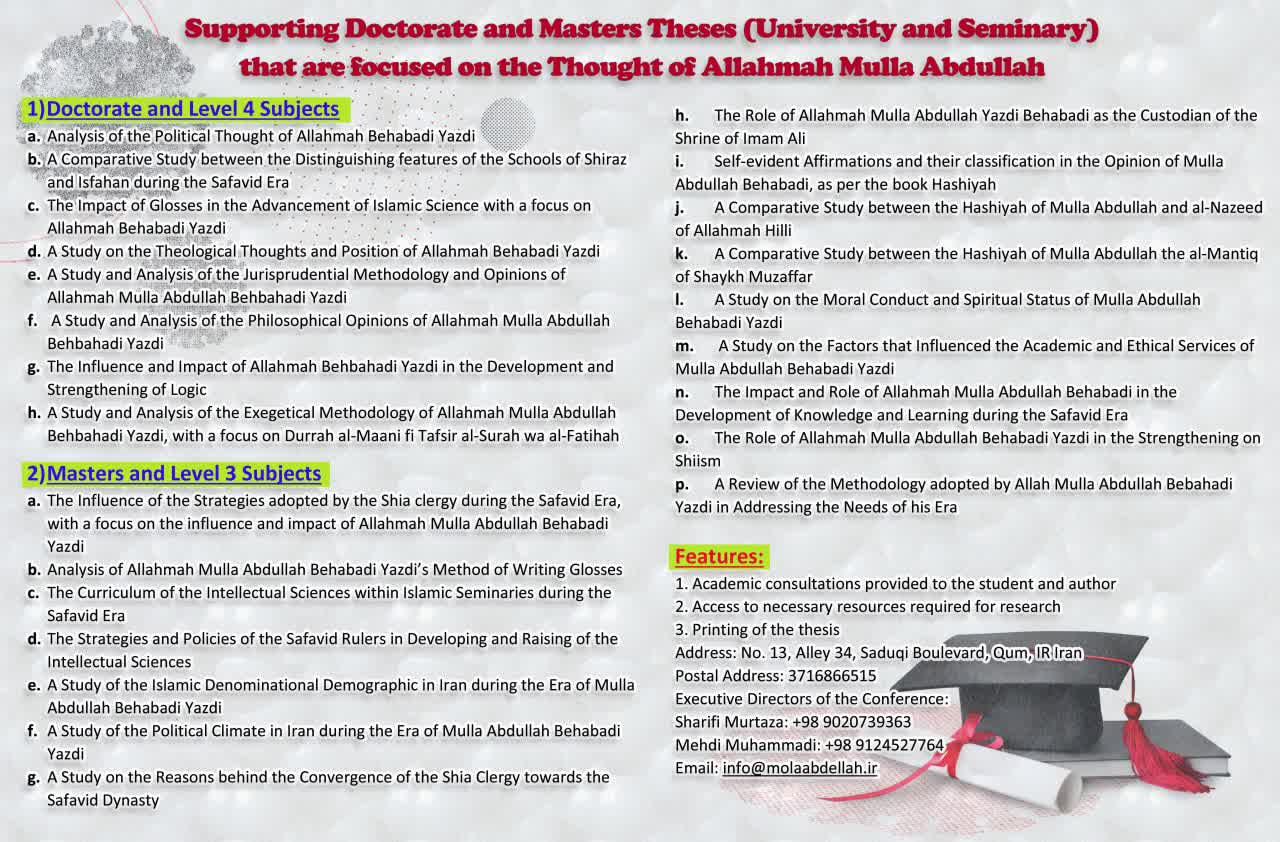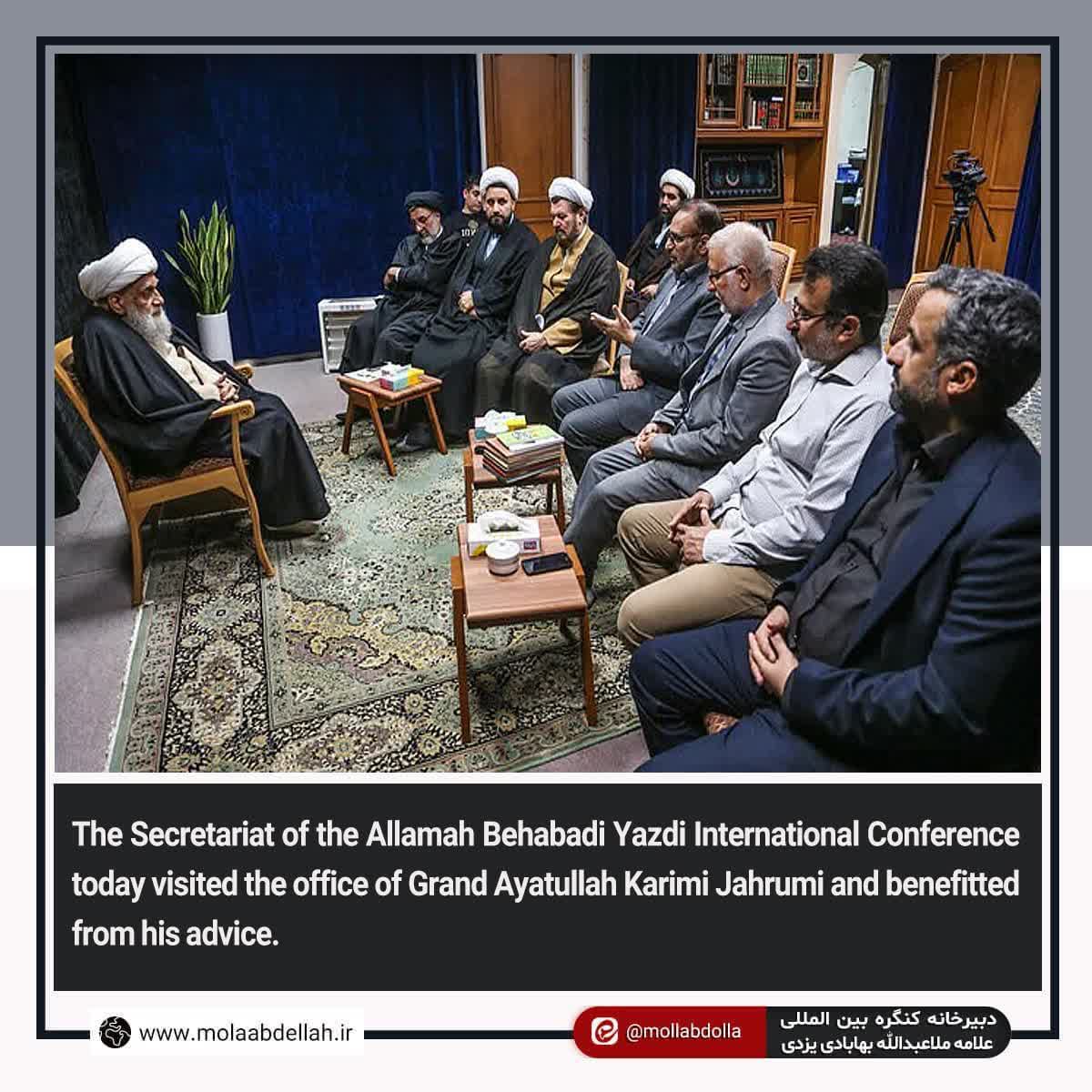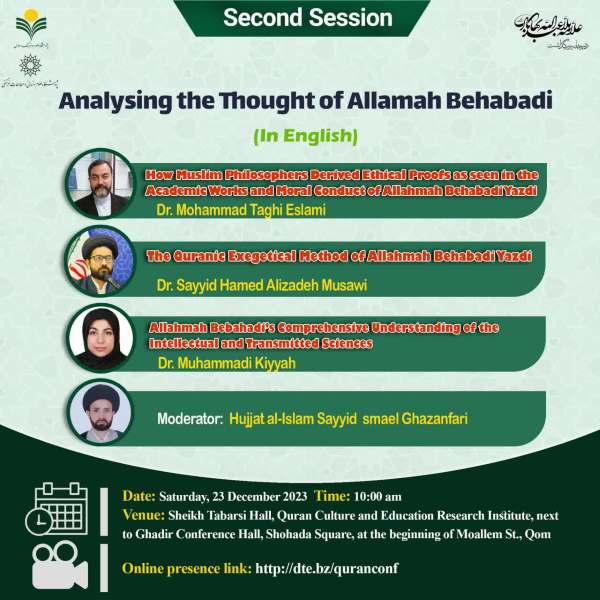The late Allameh Mala Abdullah Bahabadi is one of the great scholars of the 10th century of Hijri, who has precious and noble works in various fields of jurisprudence, interpretation, philosophy, theology, logic, etc. In the field of jurisprudence, written reports such as the margin on Al-Istbasar, the description of the rules, the margin on Alfiyyah Shahid I and the margin on Irshad al-Azhan have been narrated. After the investigations that took place, the International Congress of Allameh Mala Abdallah Bahadi was able to get hold of the manuscript of Bararshaad al-Azhan and tried to revive it. In the interview that we are at your service, we are trying to have a discussion by considering the text of the Margin of Irshad al-Azhan of the late Mala Abdallah Tawan Faqih and his fundamentals and jurisprudence.
Ayatollah Sheikh Ahmed Megamiri, the teacher of Qom seminary:
Allama Mala Abdullah Bahabadi belongs to a golden period in Shia jurisprudence, which period can be a model for those who are looking for jurisprudence. During this period, the late Moghaddis Ardabili lived. He was the author of two valuable jurisprudential books called Majma al-Fedat al-Burahan and Zubadah al-Bayan Fi Barahin Ahkam al-Qur'an, which has a completely independent and special method in jurisprudence, which created a special school. The freedom of jurisprudence while insisting on ethics and enjoying extraordinary piety and jurisprudence caution along with paying attention to the history of jurisprudence and jurists is one of the characteristics of this innovative and innovative jurist. In jurisprudence, he is the source of an impressive work and has a special thought and the owner of new opinions. In the same way, his era of jurisprudence and jurisprudence can be considered an important turning point in the history of jurisprudence, a careful study and examination of a period of "Majjam al-Fedat wa Al-Barhan in the Guidance of the Mind" and weighing and comparing the opinions of his ijtihad jurisprudence with the jurisprudence books and the opinions and thoughts of the jurists. The previous and attention to the judgement of the later ones shows the undeniable fact that Ardabili is truly an opener in jurisprudence, opener and distinguished in ijtihad.
The late Mullah Abdallah also lived in such an environment, and considering that he was a scholar of art and observed developments in jurisprudence and studying with elders such as Muqaddis Ardabili, it must be said that his scientific and spiritual personality should not be an ordinary personality. By reflecting on the margin of his spiritual guidance, it can be claimed that he has a jurisprudential method arising from the same fundamental origins. Therefore, their jurisprudence is not arbitrary and irregular, but follows its own method. The method of ijtihad of the late Mullah Abdallah is neither newsworthy nor artificial. He does not deny the principle of proof of single news, nor is he against the consensuses and opinions raised in jurisprudence. In this conversation, I intend to discuss some of the features of his jurisprudence with an emphasis on the margin of Irshad al-Azhan.
The characteristics of Mala Abdallah's jurisprudential method
1. Citing the Qur'an
In my opinion, one of the jurisprudential characteristics of the late Mullah Abdallah is the reference to the Qur'an in the margin on the guidance of the mind. Citing the Quran is a sign of lack of news. Akhbaris believed that one should not cite the Qur'an because it is beyond our reach, and some of them believed that if they cited it, it would be blessed by Timnu. While he cited the verses independently. And this is a clear proof of the claim that his thinking does not come from the origin of journalism.
2. Presentation of hadiths on the Qur'an
In his jurisprudence, he takes the design of various traditions and presentation of the Qur'an very seriously, and in many cases he presents the traditions of the Qur'an.
3. Attention to the history of jurisprudence and jurists
Another indicator that can be observed in his jurisprudence is the attention to the history of jurisprudence. The history of science plays a very effective role in the reconstruction and development of science; It is possible to go astray without knowing the history of science and lose the scientific and theoretical foundations of that science. Especially in the science of jurisprudence, which is formed based on school principles, and these frameworks have dominated the mentality of a jurist, and the jurist makes comments based on them. The late Mullah Abdallah also paid attention to history in some cases and expressed his opinion based on that attention to history.
4. Using fundamental rules in inference
There is a significant use of basic rules in derivation in his jurisprudential method. This is clearly evident in his discussions.
5. Attention to the consensus of the scholars
He has paid serious attention to the issue of consensus in such a way that it has been seen in some cases that he prioritizes consensus over other arguments in the order of evidence, which is a new style in the order of evidence.
Some of the professors of the higher levels of the seminary, considering the margin of guidance of the late Mala Abdullah Bahabadi, consider him in the ranks of great men such as Muqaddis Ardabili, Shahid Sani and Sheikh Ansari. What is the opinion of His Highness in this regard?
As it was said, considering the margin of Ershad al-Azhan, it can be said: He had a jurisprudential method that arose from a principled and basic origin. Therefore, their jurisprudence is not arbitrary and irregular, but methodical. Of course, Sheikh Ansari is rare in Shia jurisprudence, especially in inventing possibilities, it can be said that he was unique. Of course, if it is said that the personality of Allama Mulla Abdallah Bahadi was a documentary maker in jurisprudence, this claim is far from fair. Therefore, placing him next to great men such as Moghaddis Ardabili, Martyr Thani was not an excessive claim. The margin of Irshad al-Azhan in terms of mastery and reasoning fully proves this claim that he was a methodical jurist and had a school.
It is also necessary to note that it is not a fair comparison to compare these elders at times when they are very far apart. The time of Sheikh Ansari is incomparable to the time of the late Mullah Abdullah Bahadi.
How do you evaluate the influence of logic in his jurisprudence?
At that time and before that


